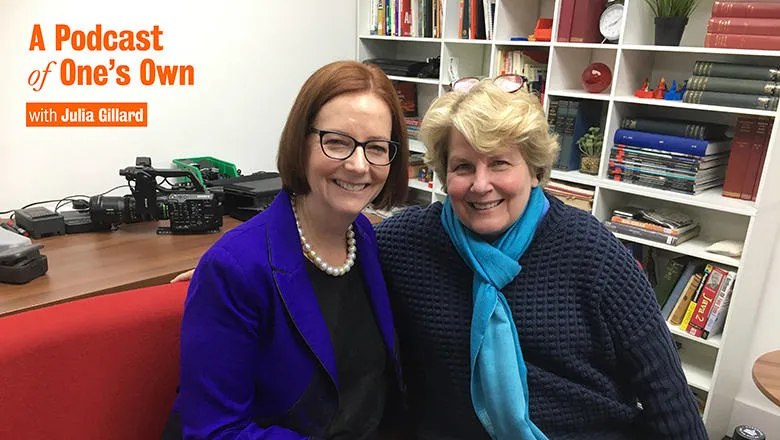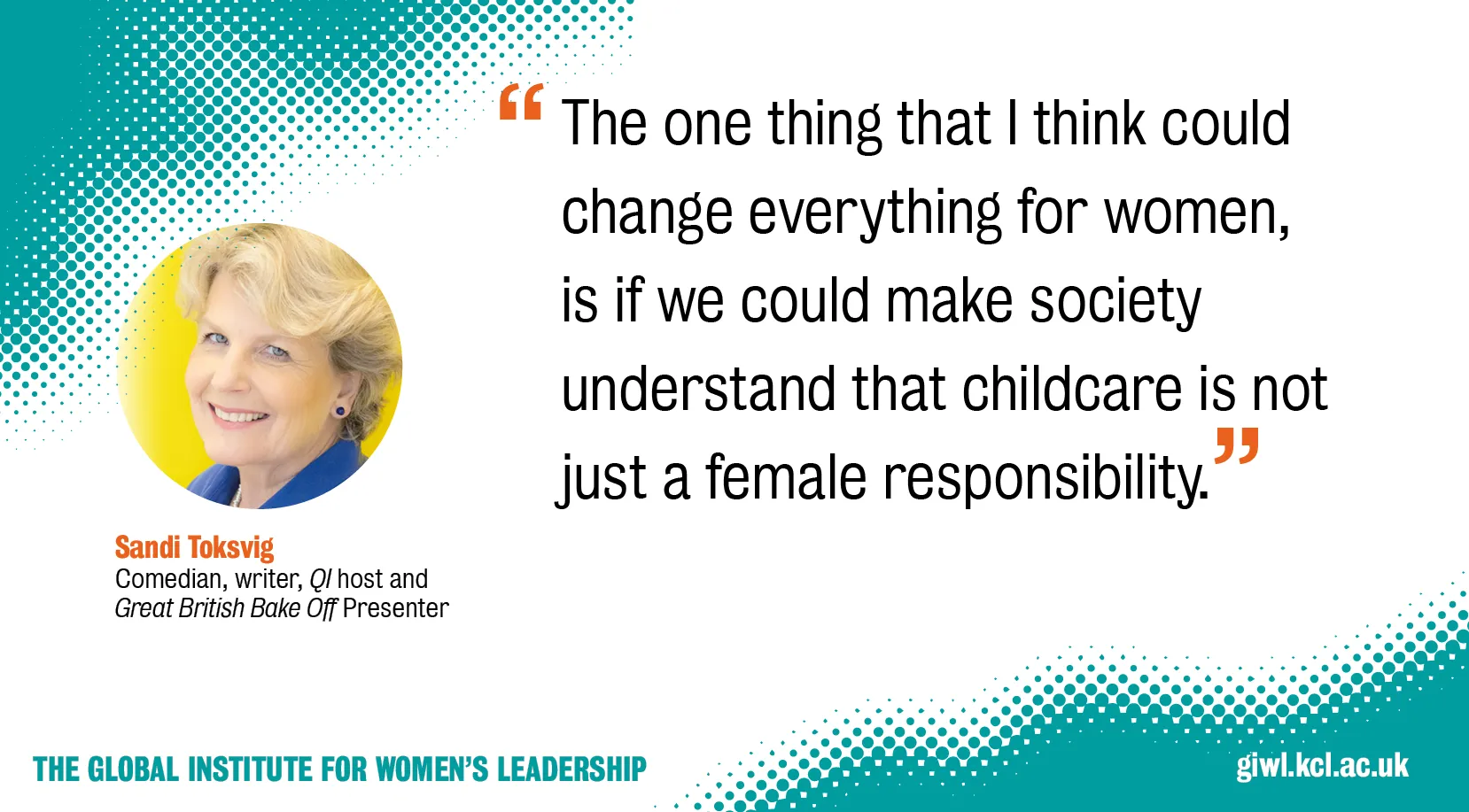11 June 2019
Sandi Toksvig says #MeToo hasn't gone far enough in comedy
Sandi Toksvig discusses misogyny and sexual harassment of female comedians with Julia Gillard in our new podcast series.

QI host and Great British Bake Off presenter Sandi Toksvig discusses misogyny and sexual harassment of female comedians with our Chair Julia Gillard in the first episode of our new podcast series.
The episode sees Sandi open up about challenges she’s overcome in her career and private life, conquering the male-dominated comedy world to become the first female host of a major panel show and a national treasure.
As the first female host of QI and Radio 4’s the News Quiz, Sandi Toksvig discusses her experience of forging a career as a leading female comedy figure in a male-dominated world. Gillard and Toksvig discuss a range of issues, from unequal treatment at school (Julia was made to study laundry, sewing and cooking), to sexual harassment of women comedians and Sandi’s decision to come out in the mid-1990s – the first lesbian in the public eye to do so.
Watch a clip from the episode
For Toksvig, a feminist for as long as she can remember, the fight against sexism began at a very young age: “At school I led a strike when I was six because I thought the boys had been allowed out to play in the rain and the girls hadn’t”.
She also recalls how her the difference in her parents’ roles made an early impression on her:
“I remember watching my father going off to work and watching what my mother did, and thinking, ‘There she is in the house – that looks really rubbish; I don’t want to do what she’s doing.’”
On graduating from Cambridge University, where she performed in amateur dramatics alongside Stephen Fry, Hugh Laurie and Emma Thompson, she embarked on a career in children’s television before hitting the comedy scene in the 1980s. She met with a world of deep-seated and routine sexism and misogyny:
“In the first major comedy club in London, there wasn’t even a toilet just a sink in the corner of the dressing room. It had never occurred to them that a woman might turn up … I had to queue with the public.”
She describes the sexist jeers and lewd remarks to which she was subjected from audiences, as well as male colleagues, and the sexual harassment her peers had to put up with or see their careers sink:
“I witnessed enough young women whose careers were either going to be promoted or not promoted because they would or would not put up with certain behaviours … we lost a lot of great early talent.”
Toksvig acknowledges that progress has been made since then, but questions whether the #MeToo campaign has had enough impact in a world where consternation at sexual harassment is often met with “Can’t you take a joke?”.
Toksvig goes on to discuss the slow progress of women’s representation on panel shows, where she feels decisions by those in power held women back from the spotlight:
“Nobody even tried to hide it, they just weren’t having it that a woman could do this kind of show.”
On the upside she comments on the warmth and support she’s received from audiences throughout her career, sometimes in contrast to the programme decision-makers, and is hopeful that the precedent she has set as host of QI is resulting in more balanced line-ups.
A lifelong campaigner for LGBT+ rights including gay marriage, Toksvig talks to Julia about the challenges she faced as a result of her sexuality. She was almost thrown out of her university college – “This year they’re giving me a fellowship to say sorry” and was dropped as a presenter. She talks about how scary it was when she first came out: “I was unaware of another lesbian in British public life…people wanted to kill me, I had to have police protection.”
Yet on LGBT+ rights she believes great progress has been made: “It’s happened so dramatically and so thrillingly and that is why I continue to believe in great change.”
She hopes the women’s equality movement can use some of the successful strategies used in the campaign for gay marriage.

Toksvig’s next project is to take on Wikipedia, with support from co-founder Jimmy Wales, to rectify the stark gender imbalance in content, where just 9% of entries are about women and their achievements, compared with 90% of posts about men. On the site, female figures are held to a higher standard than men, with many not qualifying for a place or even being edited out. The shift in 2014 to remove women from the list of “Great American novelists” to the subset “Great American Women novelists”, exemplifies this.
Toksvig plans write a new show about women and their achievements – and to take it around the world, in which she asks audience members to join her campaign to “feminise” Wikipedia: “I want to get every single member of the audience to commit to adopting one woman and making sure her entry on Wikipedia is correct or to inputting someone new”.
If successful, she’ll also plan to roll it out to schools and colleges.
Besides wanting to carve out women’s rightful place in history online, Toksvig, co-founder of the Women’s Equality Party, wants to see greater equality in the home: “The one thing that I think could change everything (for women) is if we could make society realise that childcare is not a female responsibility.”
You can find our new podcast series A Podcast of One’s Own on all the main podcast hosting platforms as well as the Global Institute for Women’s Leadership SoundCloud channel. Episodes will be released regularly and will feature women leaders from the worlds of business, media, entertainment, activism and other fields.
